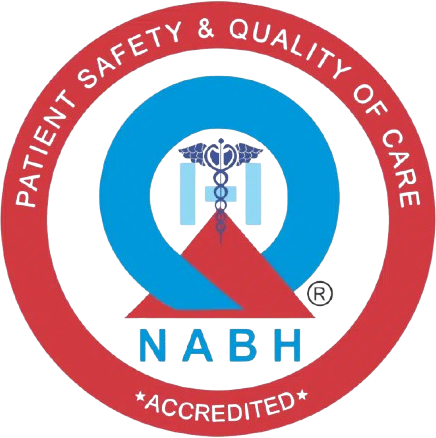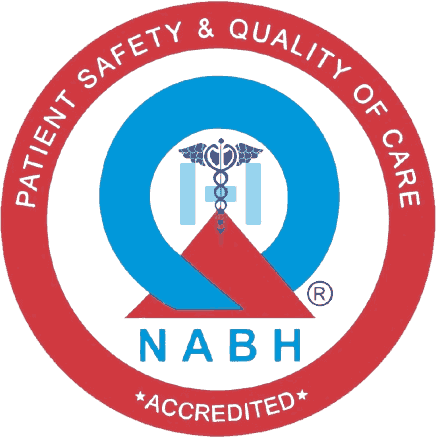Liver Transplant Program

Why Choose Health1 for Liver Transplant
- Comprehensive care under one roof: From evaluation, donor work-up, transplant surgery, ICU, imaging, labs, pharmacy to long-term follow-up — everything integrated.
- State-of-the-art facilities: Dedicated Liver Transplant OTs, advanced Transplant ICU, 24×7 blood bank & lab support, and strict infection-control protocols.
- Expert team: Experienced Hepatologists, Liver Transplant Surgeons, Anaesthetists, Intensivists, Gastroenterologists, Nutritionists, and Transplant Coordinators.
- Patient-first approach: Streamlined counselling, minimal delays in work-up, and financial guidance including insurance & government schemes (PM-JAY eligible).
- Lifelong care: Post-transplant follow-up with immunosuppressive management, nutrition & lifestyle counselling, infection prophylaxis, and helpline support.


What We Do
- Living Donor Liver Transplant (LDLT)
- Deceased Donor Liver Transplant (DDLT)
- Paediatric Liver Transplantation (for congenital or metabolic liver diseases)
- Split Liver Transplant (where suitable)
- Acute Liver Failure emergency transplants
- Re-transplantation (complex/high-risk cases)

Advanced Facilities & Services (Under One Roof)
- Dedicated Transplant OTs: Laminar airflow, ultra-modern monitoring, advanced imaging support in OT.
- Transplant ICU: Specialized protocols for liver patients; 24×7 liver-trained intensivists, invasive haemodynamic monitoring, CRRT support for renal failure.
- Endoscopy & ERCP suite: For biliary complications pre- or post-transplant.
- Dialysis & CRRT: On-demand for hepato-renal syndrome or post-transplant renal dysfunction.
- Imaging Suite: High-resolution Ultrasound with Doppler, CT, MRI, MRCP for liver graft monitoring.
- Laboratories: 24×7 with LFTs, coagulation profiles, viral markers, microbiology, immunology, and drug-level monitoring.
- Blood Bank: Component therapy, plasma exchange, irradiation support for transplant cases.
- Apheresis/Plasmapheresis: Available for ABO-incompatible transplants or pre-transplant optimization.
- Immunology Support: Cross-match, HLA, DSA, and viral serology for safe donor-recipient matching.
- Pharmacy: Round-the-clock availability of immunosuppressants & anti-viral agents.
- Rehabilitation & Nutrition: Liver dieticians, physiotherapists, and patient counselling for long-term care.


Patient Journey
- Referral & Registration → Case review, transplant coordinator assignment.
- Comprehensive Evaluation → Recipient and donor assessments, medical/legal/ethical clearances.
- Listing & Scheduling → Living donor or deceased donor pathways as per eligibility.
- Transplant Surgery & ICU Care → Standardized transplant protocols with ERAS principles.
- Discharge & Long-Term Follow-Up → Labs, imaging, medication monitoring, tele-follow-up options.


Donor & Legal Support
- Living donor eligibility assessment with thorough counselling.
- Deceased donor coordination with authorized transplant networks.
- Ethics & legal approvals facilitated by hospital’s transplant coordinators.



Safety & Quality
- Multidisciplinary board discussions for complex/high-risk cases.
- Global evidence-based protocols for infection prevention, immunosuppression, and post-op monitoring.
- Regular outcome audits for transparency and quality assurance.
Financial Counselling
- Transparent transplant packages.
- Support for insurance and cashless are provided.
Disclaimer: All procedures are subject to medical evaluation, donor availability, and statutory approvals.

FAQs Liver Transplant
1. What is a liver transplant?
A liver transplant is a surgical procedure in which a diseased or failing liver is replaced with a healthy liver from a donor. It is typically performed when the liver can no longer function properly due to chronic disease or acute failure.
2. Who needs a liver transplant?
- Liver transplantation is recommended for people with end-stage liver disease, such as:
- Cirrhosis (from hepatitis B, hepatitis C, alcohol, etc.)
- Acute liver failure
- Liver cancer (selected cases)
- Genetic liver disorders
3. Who can donate a liver?
- Liver donors can be:
- Deceased donors (brain-dead but heart-beating)
- Living donors, who donate a portion of their liver. The liver can regenerate, making living donation possible and often successful.
4. How long is the wait for a liver transplant?
The wait time depends on the patient’s MELD score (Model for End-Stage Liver Disease), which prioritizes patients based on the severity of liver disease. It may also depend on blood type, body size, and availability of donors.
5. What is the MELD score?
The MELD score is a numerical scale (6–40) used to assess the urgency of a liver transplant. A higher score indicates more severe liver disease and a higher priority on the transplant list.
6. What are the risks of liver transplantation?
- Risks include:
- Organ rejection
- Infections (due to immunosuppressive drugs)
- Bleeding or complications from surgery
- Bile duct problems
- Side effects from medications
7. How successful is liver transplantation?
- Liver transplants are generally very successful.
- The 1-year survival rate is over 90-95%.
- Many people live 10–20+ years post-transplant, especially with proper care and medication adherence.
8. What lifestyle changes are needed after a liver transplant?
- Post-transplant patients must:
- Take immunosuppressants daily
- Avoid alcohol completely
- Maintain a healthy diet and exercise
- Prevent infections
- Attend regular follow-ups and lab tests
9. Can I return to normal life after a liver transplant?
Yes, most people return to work, school, and regular activities within a few months, provided they follow medical advice and take proper care of their health.
10. How much does a liver transplant cost?
The cost varies widely by country and hospital. It typically includes pre-transplant evaluation, surgery, hospitalization, medications, and post-op care. Insurance or government healthcare schemes may cover part or all of the costs.


